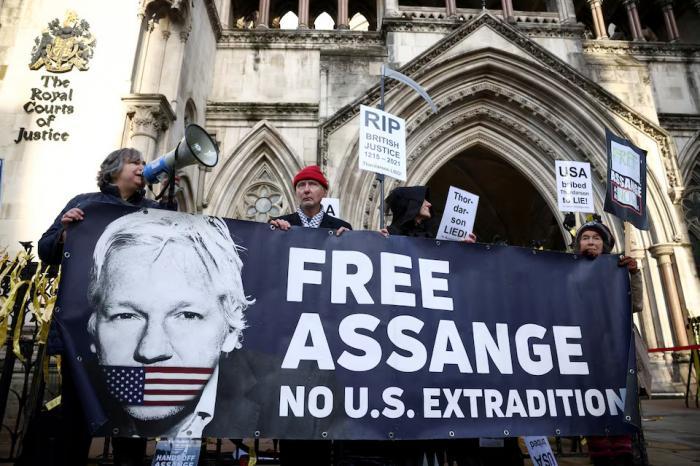
For more than a decade, the United States has been after Julian Assange, the founder of WikiLeaks, a web portal that between 2006 and 2019 put before everyone's eyes more than ten million confidential documents on military and diplomatic activities compromising the U.S. administration.
Imagine for a minute that, the mask of a nation whose universal discourse is that of the greatest freedoms literally falls in front of the whole world, based on evidence that reveals the use of cyberwarfare and surveillance tools, as well as the execution of terrible actions in Baghdad, Afghanistan, Iraq and the Guantanamo prison, illegally located in Cuba.
It is understandable then that, for the government of the biggest empire on the planet, Assange is not seen as a journalist committed to the truth, but as a "spy" who has violated the rights of that nation, revealing its secrets.
On April 11, 2019, just five years ago, the future of Assange, now 52 years old, began to be in greater danger.
On that day, the Ecuadorian Foreign Ministry informed that the President of the Republic, Lenín Moreno Garcés, was terminating the diplomatic asylum that had protected him since 2012, which left him at the disposal of the British police and courts.
Is this attitude a coincidence with respect to what happened, a few days ago, with the intervention by force of the Ecuadorian Police in the Mexican Embassy in Quito, to extract Vice President Jorge Glas? What has happened to Ecuadorian diplomacy and to the respect for international rights?... It is impossible to avoid comparisons like these.
Today Julian Assange is incarcerated in the Belmarsh high-security prison in London, a city from which, on March 26, the British justice system once again asked the United States for new guarantees on the treatment that the Wikileaks founder would receive in the event of his extradition.
The Australian Prime Minister, Anthony Albanese, a few months ago also established a request for the cancellation of the process.
"We are considering it," responded President Joe Biden, from North America, to the planet's surprise.
In four years of administration, Biden has done nothing about the Wikileaks founder, whom the White House wants behind bars. What is the interest of doing so in the middle of the electoral race?
The journalist's wife, Teresa Assange, in an interview granted to the BBC, considers the words of the Head of State encouraging; while Barry Pollack, lawyer in charge of the case, assures that "this unprecedented prosecution of someone for publishing truthful and newsworthy information should never have happened".








